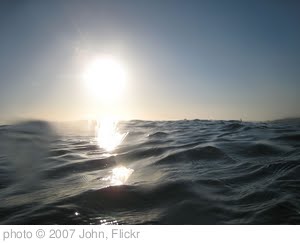nonviolent action
I WAS CONCERNED about the Zaporizhzhia nuclear power plant because of my background in things nuclear. Europe’s largest nuclear plant was sitting in frontline combat. It has hundreds of times more nuclear material than Chernobyl. When I read about the International Atomic Energy Agency sending in unarmed inspectors, I thought, here are 14 guys risking their necks to save what could be tens of thousands of people if this plant goes up. Those guys probably have never heard of nonviolent action or unarmed protection — everything you do to keep yourself and others safe once you take violence off the table. The least we, who practice this stuff, could do is support them.
POLITICAL SCIENTIST Gene Sharp, in his seminal trilogy The Politics of Nonviolent Action, listed 198 methods of nonviolence, from protest and persuasion to noncooperation and nonviolent intervention. The people we profile in Sojourners, and the stories we highlight, often exemplify these various methods, and this issue is no exception. Guatemalan poet, theologian, and peace activist Julia Esquivel used the power of transformative words to confront, demystify, and, in ways often impossible to see until years later, weaken her country’s dictatorial regime and by extension other autocratic rulers.
N ANY DEEP national division, political peace is critical. The absence of a formal peace treaty between North Korea and South Korea and the U.S. is an enormous barrier to a new future. Yet easily overlooked is that lasting peace also requires decades-long work of people-to-people engagement.
Novelist Chimamanda Ngozi Adichie has spoken of “the danger of a single story.” In few places is that danger more real than between North Koreans and Americans who are profoundly misinformed about each other after 70 years of mutual isolation.
If we see our interests and needs as more important than the interests and needs of others, then we’ll never have peace in our personal lives or in our world. Peace requires a recognition that we’re all equally beloved children of the same loving God.
It involves recognizing that we all matter equally — and then doing some introspection to see if we’re living up to it in our various relationships.
Recent analyses of the Arab Spring have questioned the efficacy of nonviolent resistance compared to armed struggle in ousting authoritarian regimes. The relatively expeditious victories of the nonviolent uprisings (not "revolutions," as some suggest) in Tunisia and Egypt stand in stark contrast to Libya, where a disparate amalgam of armed groups, guided politically by the Libyan Transitional National Council (TNC) and backed militarily by NATO, are on the verge of removing Moammar Gadhafi from power. As someone who has written extensively about civil resistance, notably in the Middle East, while at the same time working on the Libya portfolio within the State Department, I've been grappling with the meaning and significance of the Libyan revolution and its possible impact on the region.
First of all, like most people, including my State Department colleagues, as well as democrats and freedom fighters around the world, I am delighted that an especially odious and delusional Libyan dictator is getting the boot. I applaud the bravery and determination of the Libyan people, who have endured four decades of a despicable dictatorship and have made great sacrifices to arrive at this point. I hail the extensive planning that my U.S. government colleagues have undertaken over the past five months, in concert with Libyan and international partners, to support a post-Gadhafi transition process.
The forthcoming dedication of the national memorial monument honoring Rev. Dr. Martin Luther King, Jr., affords an opening for considering the complexity and meaning of his leadership. He was not the tamed and desiccated civil hero as often portrayed in the United States around the time of his birthday, celebrated as a national holiday. He was until the moment of his death raising issues that challenged the conventional wisdom on poverty and racism, but also concerning war and peace.
King was in St. Joseph's Infirmary, Atlanta, for exhaustion and a viral infection when it was reported that he would receive the 1964 Nobel Peace Prize. As Gary M. Pomerantz writes in Where Peachtree Meets Sweet Auburn, this was the apparent cost exacted by intelligence surveillance efforts and the pressures of learning that Attorney General Robert F. Kennedy had formally approved wiretaps by the Federal Bureau of Investigation. His evolving strength as a leader is revealed in his remarks in Norway that December, which linked the nonviolent struggle of the U.S. civil rights movement to the entire planet's need for disarmament.
Won't it reduce our dependence on Middle Eastern oil? Won't somebody else develop the Alberta tar sands if the U.S. doesn't do it -- someone like China, perhaps?
I've been wrestling with many of these issues as I contemplate risking arrest as part of two weeks of sustained protest by leading environmentalists, climate scientists, and faith-based groups at the White House forth to pressure the Obama Administration to block the Keystone XL Pipeline. This pipeline project will connect Canadian tar sands -- containing the second largest and dirtiest oil reserves on the planet -- with the oil refineries in Texas.
The rioting and rampages that spread across English cities last week have caused severe property destruction and raised public alarm. Writing in London's Guardian, community organizer Stafford Scott describes how he was among the group that on August 6 sought information from the police in Tottenham, a poorer section of London. They wanted an official statement on whether Mark Duggan had been killed by police bullets, as had been reported in the news.
All we really wanted was an explanation of what was going on. We needed to hear directly from the police. We waited for hours outside the station for a senior officer to speak with the family, in a demonstration led by young women. A woman-only delegation went into the station, as we wanted to ensure that this did not become confrontational. It was when the young women, many with children, decided to call it a day that the atmosphere changed, and guys in the crowd started to voice and then act out their frustrations.
This event is what most media accounts have identified as the spark that set England on fire, which has caught the world by surprise. Yet, says Scott, "If the rioting was a surprise, people weren't looking."
 An account in The New York Times by Ethan Bronner reports that Israeli women and West Bank Palestinian women and girls have once again broken Israeli laws. They have gone swimming in the Mediterranean Sea.
An account in The New York Times by Ethan Bronner reports that Israeli women and West Bank Palestinian women and girls have once again broken Israeli laws. They have gone swimming in the Mediterranean Sea.
More than two dozen Israeli women invited Palestinian women and girls from the southern part of the West Bank of the Jordan River -- who are not normally allowed into Israel and have no access to the sea -- to go swimming with them. Under Israeli military occupation since 1967, according to Bronner, "most had never seen the sea before."
 With the scandal around Rupert Murdoch growing by the day, a full-fledged boycott of News Corp. has been launched on the internet, according to the Washington Post.
With the scandal around Rupert Murdoch growing by the day, a full-fledged boycott of News Corp. has been launched on the internet, according to the Washington Post.
The website Boycott Murdoch also has Facebook and Twitter pages. While the boycott has received coverage on many mainstream news outlets, it has yet to gain much traction. The Facebook page has less than 700 fans and the Twitter page is approaching only 1,000 followers. To make even a small dent in Murdoch's bottom line, the boycott will need to metastasize, and quickly.
With all the recent and well-deserved attention on the work of Gene Sharp, it shouldn't come as any surprise that a film about the foremost living strategist of nonviolent action is soon to be released.
Since the recent passage of Arizona Senate Bill 1070, scheduled to go into effect on July 29, those of us working for social justice in the United States have a rare opportunity to register a particularly effective form of protest.


